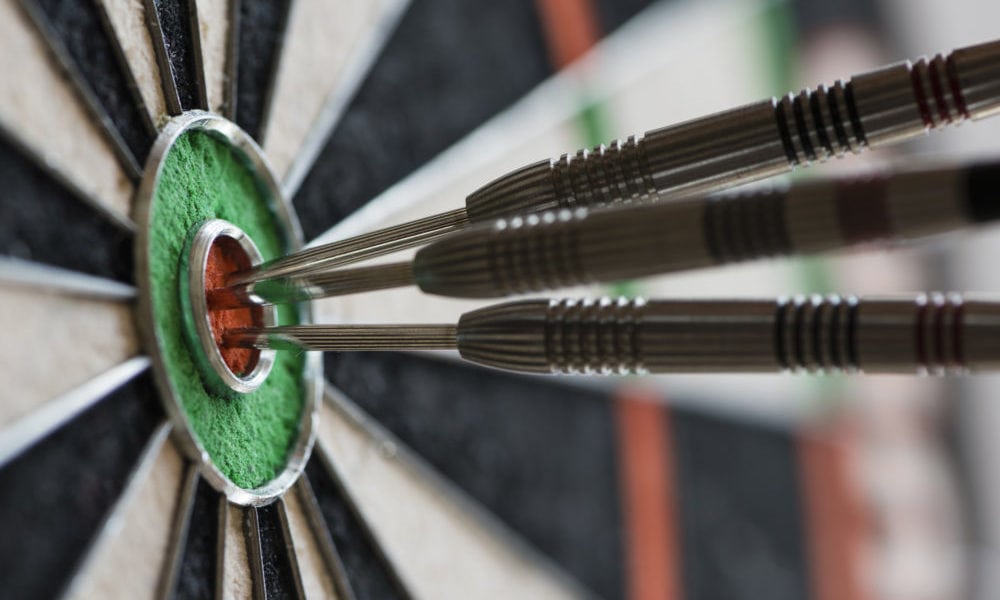
You wake up in the morning and the first thing you do is look at your phone. Notifications fill the screen, showing you status updates from friends, the latest world news, the weather, and emails awaiting you.
As you sit down to work, your phone buzzes and your email alerts you to a new message. A friend drops by your desk to briefly chat. You do a quick check of the news and end up spending twenty minutes reading the headlines.
By noon, you’ve managed to achieve a few things, but nothing of substance. You haven’t made progress on any of your big projects. You’ve managed to fire off a few emails and give a few project updates, but that’s about it.
And so it goes for the rest of your day. You manage to get about 10 minutes worth of work done before something interrupts you. Breaks your focus. Takes you away from the project at hand.
You go home at the end of the day feeling like you got NOTHING accomplished. And truth be told, you didn’t get much accomplished.
It’s a terrible feeling, right? So much to do, and yet you get so little done. Have you ever felt this way? Like you can’t make progress?
But what’s the solution? How can you escape this cycle of distraction and inefficiency?
Deep work…
What Is Deep Work?
Deep work is the process of setting aside significant blocks of uninterrupted time to do meaningful work on important projects.
It’s shutting down the distractions – email, social media, text messaging, etc. – in order to achieve something important.
Deep work is so important because without it, you’ll constantly find yourself caught in shallow, unimportant tasks and never make progress on anything that actually matters.
It’s really hard to do things well without deep work. Want to write a book? You’ll need deep work. Want to code an amazing program? Deep work. Want to actually make a difference in the workplace and not simply be an email pusher? Do deep work.
As Cal Newport says in his book Deep Work:
If you service low-impact activities, therefore, you’re taking away time you could be spending on higher-impact activities. It’s a zero-sum game.
You can’t do it all. You either devote specific time to work that matters or other things will grab your time and attention.
Deep Work Is Necessary For Success

When you look at the most successful people in the world – the ones who have accomplished the most – one thing that binds them together is an emphasis on doing deep work.
Novelist Neal Stephenson, who writes massive, epic tomes, once posted the following on his website:
The productivity equation is a non-linear one…This accounts for why I am a bad correspondent and rarely accept speaking engagements. If I organize my life in such a way that I get lots of long, consecutive, uninterrupted time chunks, I can write novels. But as those chunks get separated and fragmented, my productivity as a novelist drops spectacularly.
Professor Adam Grant, who churns out academic papers and New York Times best sellers at a crazy rate, puts his email on auto-reply and blocks out 3-4 days to write.
The famed physicist Richard Feynman invented a myth about himself (that he was irresponsible) so that he wouldn’t have to serve on committees and could devote himself to concentrated work.
The point is this: you can’t achieve good, deep work when you’re constantly immersed in distractions. It just can’t happen.
If you want to succeed, to accomplish big things and actually make a difference, deep work is your only option.
How To Get To Deep Work
It sounds great to talk about deep work, right? You believe that it’s important and know that distractions are killing you. But how do you actually make deep work happen? How do you move from the shallows into the deep end?
Here are a few suggestions.
Eat The Frog
We constantly talk about the importance of “eat that frog”, the concept of doing your most important task first thing in the morning. This allows you to make progress on your most important tasks before the other concerns of the day push their way in.
By implementing “eat that frog” in your own life, you ensure that you’ll do some deep work every day.
Create Rituals
Deep work doesn’t happen by accident. You don’t slide into it. If you don’t take control of your time, someone else will. Rituals allow you to carve out time every day for deep work.
Cal Newport recommends:
- Deciding where you’ll work and for how long
- Deciding how you’ll work (will you eliminate internet use?)
- Deciding how you’ll support your brain during the strenuous work (with caffeine, for example).
Implement Timeboxing
One of the core concepts of deep work is carving out blocks of time during which you only focus on doing deep work.
One of the most effective ways to carve out that deep work time is through timeboxing. Timeboxing allows you to have a hyper focus for a short period of time while also allowing your brain a break to breathe.
Set Big, Audacious Goals

You can’t achieve deep work if you don’t have any big goals. This is because, for the most part, only big goals require deep work. You can achieve lots of little things while multitasking and messing around on social media.
Big goals, however, require intense focus. Drive. Full attention. When you have a worthy goal in front of you, you have to go all in.
Writer David Brooks says:
If you want to win the war for attention, don’t say ‘no’ to the trivial distractions you find on the information smorgasbord; try to say ‘yes’ to the subject that arouses a terrifying longing, and let the terrifying longing crowd out everything else.
Wow. That’s powerful.
Do you have those big, terrifying goals? That’s how you move toward deep work
Figure Out What Distracts You
Few things kill deep work like distractions. The buzzing phone, dinging inbox, Facebook notifications. It’s impossible to get things done when your brain is constantly moving from one thing to the next.
In order to actually get meaningful stuff done, you’ve got to kill the distractions. Not totally, just when you’re trying to focus. Shut down your email, close out social media, maybe put your phone in airplane mode. If this doesn’t work, invest in tools that will help you escape.
It’s going to be tough at first, but you’ll be glad you did.
Next Actions
- Determine your big goals. Figure out what you want to do that will make the most difference in your life and productivity.
- Each night, determine the one “frog” you’re going to eat to make progress on your big goals.
- Block out specific blocks of time in the morning to do the deep work, where you achieve your eat the frog task.
- Make a list of all the things that will distract you from deep work. Include emails, social media, meetings, phone calls, and anything else you can think of. Create a plan for you will keep those things out of your deep work blocks.
Deep work is hard. It takes intention, focus, discipline, and a willingness to give up the easy stuff to achieve what’s meaningful.
But deep work is also so important. If you want to be successful and happy, you can’t constantly play around in the shallows. You’ve got to go deep.

I really enjoyed this article and believe that it has so much merit especially now in the age of the smartphone and what it does. Looking at your phone these days no longer just means checking emails and text messages. The phone has become so much now. Just to name a few, it tracks our fitness, gives us access to audiobooks, podcasts, it acts as a timer, a stopwatch, even as a simple clock!
Paula, regarding your comment on Newport’s feelings about Social Media, I wondered about that too. I think on one hand he’s missing huge opportunities by not taking advantage of social media to get his message out, promote himself, tap into things. On the other, he’s decided it’s not worth it to him to be in that world. He’s accomplished a lot without it – writing books, papers, doing his job as professor etc. Maybe he’ll eventually oblige it, who knows. For now it works for him.
What resonates for me from the blog article is the eating the frogs, creating rituals and figuring out what distracts you. The notifications on the phone are huge. Controlling these are crucial. My biggest distractor is What’s App. I live abroad and , this is how my friends and I keep in touch. With the huge time difference between us across multiple time zones, this is also a huge issue since I’ll get tons of messages in both on and off hours. So I wake up to tons of messages, I receive them in work hours, off work hours, it’s a constant barrage.
If this area can be mastered, you’ll blow away the competition and hit huge levels of success.
Clark
It is SO important to structure our time well in order to do deep work. I differ from Newport re: social media, though. It serves a true public safety purpose, is an extension of good writing (not a silly time filler), and facilitates deep connections between people. I am sorry Dr. Newport is so dismissive of it.